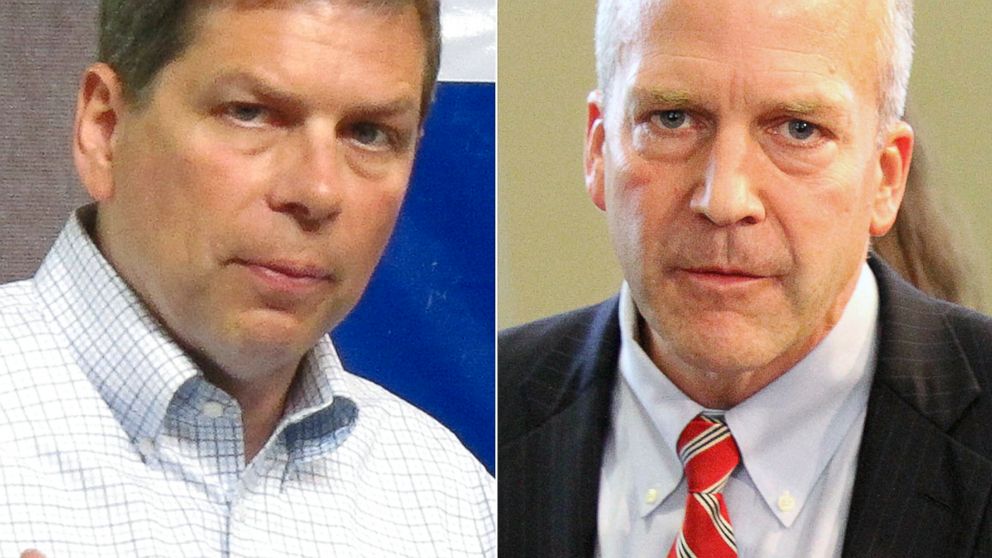Why Alaska Election Results Are Taking Sooooo Long
Why patience is a virtue in the Last Frontier

— -- Neither the Alaska Senate race nor the Alaska gubernatorial race have been called -- and both may take a while.
Here are seven questions and answers about why patience is a virtue when it comes to the Last Frontier:
Isn’t the election over?
Yes, the election was Tuesday, but we may not have an answer to the questions of who is the new Senator and Governor from the Last Frontier for weeks because there are still votes to be counted and that won’t start until next week. According to Gail Fenumiai, the director of the Alaska Division of Elections, there are 23,271 early and absentee ballots deemed eligible for counting. These are already received and reviewed as eligible. They sent out another 12,541 absentee ballots and if postmarked by November 4th, ballots can arrive legally 15 days after the election and still be properly counted. Of course, they have no idea how many of those will be returned.
How long is this going to take?
We don’t know exactly, but here’s what we can tell you: There are also an unknown amount of provisional ballots, which are ballots that may have been cast at an incorrect polling location or if a poll monitor couldn’t find a voter’s name, amongst other possible irregularities. In 2010, there were about 13,000, but they have no idea if the number will be the same. The ballots are currently being reviewed for eligibility. There are also an additional 2,651 statewide early votes that remain to be counted. On top of those votes, there are absentee ballots coming in daily from Alaska’s over 200 in-person voting locations. Some that arrived before Election Day have been counted, but none of the ballots coming in from as many as 120 rural communities have been tabulated yet. The number of those are completely unknown. In addition to these ballots there are about 2,000 urban early votes that have yet to be counted. They will be counted on November 11th, 14th, and then from the 17th through the 19th if necessary. Remember in Alaska, absentees are sent in from remote locales so these races may not be called for quite a while.
Just how remote are we talking?
Alaska’s biggest city is Anchorage, but the state is dotted with tiny, rural communities, some accessible not by roads, but only by boat or plane. Democratic Sen. Mark Begich made a strong push for these voters sending local campaign staffers to these villages called the Alaskan bush to register voters along with materials in native languages. He even set up campaign offices in some small communities, but Begich’s GOP challenger Dan Sullivan’s wife is the daughter of native Alaskan leaders and he frequently spoke about that heritage on the campaign trail. As in all states, absentee ballots can be mailed in from all over, but unlike other states in Alaska they may come from voters in far flung locales like a commercial salmon fishermen or oil rig workers on the North Slope. In a statement, Begich campaign manager Susanne Fleek-Green noted the outstanding ballots and difficulty some went through to vote saying they were, “inspired by stories of village elders being lifted onto four wheelers to go vote and Alaskans traveling up and down river to cast their ballots.” Get Out the Native Vote, a group working to increase voting access to native Alaskans, released a statement saying “the election isn’t over until ‘rural Alaska sings.’” And this time it certainly looks to be true.

So, where does the vote count in Alaska stand now?
In the Alaska Senate race, with 100% of precincts reporting, Sullivan has 49% to Begich’s 45.3% of the vote. Sullivan leads Begich by 8,149 votes. In the Alaska Gubernatorial race, with 100% of precincts reporting, independent challenger Bill Walker has 48% to incumbent GOP Gov. Sean Parnell’s 46.6% of the vote. Walker, the independent gubernatorial candidate running with a Democratic lieutenant governor to form a “unity ticket,” leads Parnell by 3,165 votes.
But, someone will concede soon, right?
It doesn’t look like it. In neither race are the trailing candidates, Begich or Parnell conceding any time soon.
In statements, Begich campaign manager Susanne Fleek-Green said they were “anxious for a final count” and they respect the “procedures, process and timetable of the Alaska Division of Elections.” She said Begich would make a statement on the race only after “counts arrive from the seventy outstanding villages and when the number of outstanding absentee and questioned ballots is clear.” But, for Sullivan, he posted a statement on his Facebook page as if the election was over writing, “Now, the real work begins. We’re going to get our country back on track and empower Alaskan families and communities to decide their own destiny.” His campaign told ABC News Sullivan is leaving today for Marine Corps Reserve training.
And what about Parnell?
Parnell is also standing firm saying in a statement, “with the governor’s race still dependent on more than 30,000 absentee and questioned votes left to count, this is an extremely tight race. We will make sure every Alaskan’s vote gets counted and we remain confident that the lead can switch with the number of ballots remaining.” Walker announced they will send observers for next week’s ballot counting. In a statement, Walker said, “this race is not yet over, but we remain optimistic that we will maintain our lead as absentee votes are counted in regional centers,” noting they hope to have “more definitive news by next week.” He added that since inauguration is December 1st, despite not being officially elected he has already met with campaign advisors to “review a possible transition timeline that could begin once all the ballots are counted.”
Do Begich or Parnell have a chance?
Stranger things have happened in Alaska, but Sullivan’s lead is hard to overcome. In 2008, the race between then then-Anchorage mayor Mark Begich and longtime GOP Sen. Ted Stevens went on for over two weeks. On election night Begich trailed Stevens by over 3,000 votes out of over 221,000 cast, but ended up winning by about 4,000 votes, an increase of about 2.7 percent. The reason why there’s incentive for both sides not to give in until they have to.




